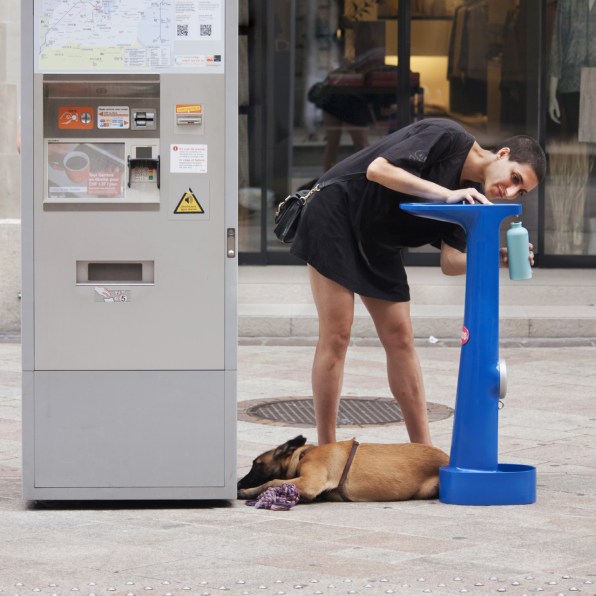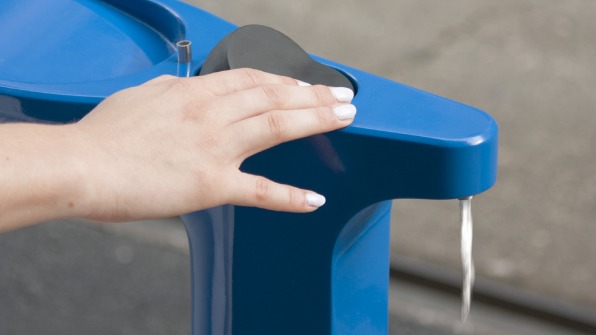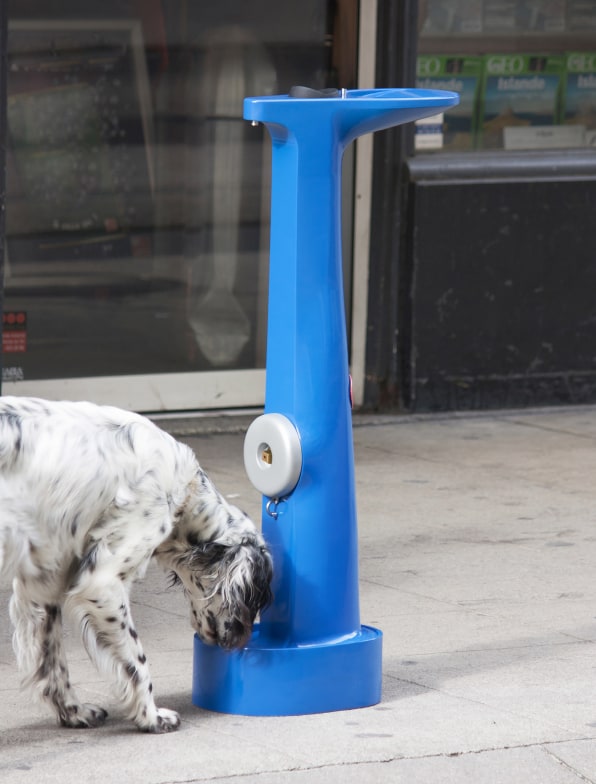How Much Does A Fire Hydrant Cost To Fix
For anyone trying to curb the world's plastic water bottle addiction–as of 2017, we were buying 1 million water bottles a minute, and by 2021, we'll be using more than 580 billion a year–one challenge is still convenience. If it's hard to find a place to refill a reusable water bottle, people are unlikely to break the habit of buying disposable bottles at stores.
Since public drinking fountains tend to be rare, campaigns in a handful of cities are pushing restaurants to offer free refills of tap water. But a Swiss design student suggests cities could convert existing infrastructure instead, replacing traditional fire hydrants with a design that can continue to fight fires but double as a drinking fountain.

"I liked the idea that people could have access to water everywhere, so that they would perhaps take their bottle with them, and not buy a plastic bottle," says Dimitri Nassisi, a recent graduate of the École cantonale d'art de Lausanne (ÉCAL) in Renens, Switzerland, who designed the new fountain for his thesis project. On a walk with his dog, as Nassisi thought about the problem of how to add more drinking fountains or bottle refill stations, he saw a fire hydrant and realized that it might be possible to make use of the fact that hydrants are ubiquitous.

In Nassisi's proposal, a new cast iron design would replace the top of a fire hydrant (the lower portion, hidden under the street, would stay the same). In the case of a fire, firefighters could still use it the same way they did before. But it includes a top with a button that someone walking by can push to the right to fill a reusable bottle, or to the left to drink directly. The overflow fills a dog bowl at the bottom.

Inside, tubes pass through a pressure reducer, so you're not literally drinking from a fire hose. Nassisi explains that water pipes coming to buildings have the same high pressure, but it's easy to reduce with a valve. The water in fire hydrants in Switzerland is safe to drink; the same is true in many places, although some cities may use recycled water.
In Montreal, designers experimented with similar ideas–one design was an attachment to the top of a regular hydrant, but it was removed after it failed fire department tests. Cleveland installed temporary attachments on hydrants during the 2016 Republican convention. But Nassisi thought that it was important to create a full replacement rather than trying to hack an old hydrant–both so it works well and so people would actually want to use it. The design looks neither exactly like a drinking fountain or a fire hydrant; it's a new form. "I wanted it to be recognizable and noticeable," he says.
Though the design is conceptual, Nassisi believes that it's practical–though he doesn't know what the full cost would be. (In some locations, like the U.S., there might also be challenges with lead.) While building a single drinking fountain is an expensive process, the new design would tap into the existing underground infrastructure for fire hydrants, cutting some costs. They could also pull from government funding both for drinking fountains and hydrants, and could be used when an old hydrant already needs replacement. "I don't think it would replace all fire hydrants," he says. "I think the smartest way would be to find strategic replacements in the streets."
How Much Does A Fire Hydrant Cost To Fix
Source: https://www.fastcompany.com/90221609/if-every-hydrant-was-a-water-fountain-would-you-use-less-plastic
Posted by: hamlinevandood1949.blogspot.com

0 Response to "How Much Does A Fire Hydrant Cost To Fix"
Post a Comment